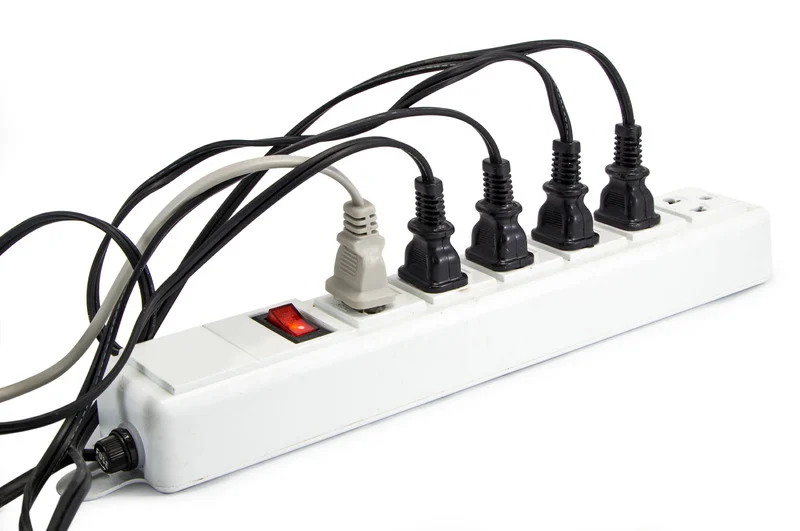Top Ways to Preserve Earth’s Draining Fuel
- offgridworld.com
- Aug 29, 2023
- 4 min read

Fossil fuels make up about 85% of the global energy system. However, the ever-increasing demand for energy is putting a lot of strain on these finite energy reserves of our planet. Fossil fuels are non-renewable and are rapidly running their course by the minute. Today, fossil fuels have mostly reached their ‘peak’ production point, thus, making extraction of these energy sources costlier and tedious.
Furthermore, the burning of fossil fuels is bad for the environment. Harmful pollutants such as carbon dioxide, carbon monoxide, sulfur dioxide, etc. are released into the air, escalating the problem of air pollution. Thus, it is becoming increasingly essential to find alternative energy resources to meet the global energy demands as well as minimize the adverse environmental effects.

We can conserve energy resources by making small adjustments in our daily habits and adopting a greener lifestyle. Not only would this stop the finite resources from depleting, but it would also have a significant positive impact on the environment.
Here are five steps you can take to help conserve Earth’s draining energy resources:
1. Adopt An Energy-Efficient Lifestyle
You can turn towards an energy-efficient lifestyle by performing simple actions like turning off appliances when not in use; unplugging chargers; insulating water heaters to minimize heat loss and energy wastage; running full loads of clothes and dishes in the washing machine and dishwasher; weather-stripping your home, and so on.
Also, replacing conventional electrical appliances with their energy-efficient counterparts will help save a lot of energy while reducing your annual energy costs. For instance, replacing incandescent bulbs with LED bulbs and conventional fans with energy-efficient ceiling fansns can help you save energy and also reduce your utility bill.
2. Reduce, Reuse, and Recycle
The first obvious step to conserving energy resources is to reduce consumption. Use appliances only when necessary and turn them off when not in use.
Minimize your usage of plastic since the manufacturing of plastics requires petroleum. When going grocery shopping, you can carry a bag and avoid taking a plastic bag from the retailer.
Encourage e-bills and receipts as it helps cut down on the use of paper, thereby saving our valuable forest resources.
Drink filtered water and not bottled water as the plastic bottles keep piling up in landfills.
Many household items can be reused such as glass containers, coffee jars, etc. You can use these to store dry food items (nuts, spices, sugar, salt, etc.).
Adopt the habit of recycling old goods like plastic bottles, glass containers, paper, etc.
Instead of throwing away your old electronic appliances like microwaves, ceiling fans, and TV sets, you can donate them to charities or the needy.

3. Opt For Public Transportation
Automobiles are the greatest consumers of fossil fuels. As more people begin to use personal vehicles, the consumption of fuel only scales up.
By traveling through public transport (buses, trams, metros, etc.), you can not only reduce fuel consumption but also reduce the harmful emissions from automobiles.
Carpooling with others is also a good option. Also, try walking and cycling to cover shorter travel distances. This way you stay fit while helping conserve energy resources.
4. Choose The Green Lifestyle
Sustainable living practices go a long way in energy and environmental conservation. A green way of living entails that you respect nature and try to create a balance between your needs and the natural resources.
Opt for environment-friendly products that do not contain harmful chemicals. Start composting your organic waste. It will not only serve as rich manure for your garden but will also considerably reduce the amount of waste that ends up in a landfill. Plant lots of saplings and encourage others to do the same. Trees and plants play a pivotal role in maintaining the delicate balance of the ecosystem.
Choosing renewable and clean energy (wind energy, solar energy, etc.) to power your home is also a great option. Installing solar shingles or panels on your roof and solar devices (solar fans, solar lights, solar ovens, solar air conditioning, etc.) can very efficiently power up the devices in your house. The same goes for small wind systems. These sources of energy are not constrained and if tapped wisely, can prove to be very resourceful.

5. Conserve Water
Water is extremely essential for our survival. Although it seems that water is an abundant resource, only about 2.5% of the Earth’s water resource is fresh water. Thus, it is important to conserve water in any way we can.
You can save water by taking a few simple measures, such as taking short showers, turning the tap off while washing the dishes or brushing your teeth, fixing leaky faucets and water pipes, and so on.
Also, rainwater harvesting is a great way to conserve water. Instead of letting the rainwater get wasted as runoff, you can collect it in clean tanks and containers and use it to wash your car and water your plants.
Spread The Word
When more people are educated about conserving energy resources, they will be inclined to act more responsibly. Do your part by spreading awareness about energy conservation and people will follow your lead. Remember, positivity can be contagious!
Incorporating these little changes in your lifestyle can significantly benefit our environment. If everyone cooperated, any change, no matter how small, will eventually create a big difference.

_edited.png)








Comments